-
 Bitcoin
Bitcoin $114400
1.32% -
 Ethereum
Ethereum $3499
2.20% -
 XRP
XRP $2.922
4.26% -
 Tether USDt
Tether USDt $0.0000
0.03% -
 BNB
BNB $752.6
1.53% -
 Solana
Solana $161.8
1.64% -
 USDC
USDC $0.9999
0.01% -
 TRON
TRON $0.3267
1.32% -
 Dogecoin
Dogecoin $0.1991
3.02% -
 Cardano
Cardano $0.7251
3.29% -
 Hyperliquid
Hyperliquid $38.32
3.36% -
 Stellar
Stellar $0.3972
7.58% -
 Sui
Sui $3.437
2.74% -
 Chainlink
Chainlink $16.29
3.65% -
 Bitcoin Cash
Bitcoin Cash $545.3
3.70% -
 Hedera
Hedera $0.2482
7.49% -
 Ethena USDe
Ethena USDe $1.001
0.03% -
 Avalanche
Avalanche $21.40
2.02% -
 Toncoin
Toncoin $3.579
1.56% -
 Litecoin
Litecoin $109.3
2.20% -
 UNUS SED LEO
UNUS SED LEO $8.951
-0.18% -
 Shiba Inu
Shiba Inu $0.00001220
2.75% -
 Polkadot
Polkadot $3.613
2.99% -
 Uniswap
Uniswap $9.173
3.78% -
 Monero
Monero $302.6
2.62% -
 Dai
Dai $0.0000
0.00% -
 Bitget Token
Bitget Token $4.320
1.52% -
 Pepe
Pepe $0.00001048
3.40% -
 Cronos
Cronos $0.1314
4.33% -
 Aave
Aave $259.4
3.54%
How is an Ethereum ETF different from Ethereum futures?
The choice between an Ethereum ETF and futures depends on an investor's risk tolerance, investment goals, and trading strategies, with ETFs offering passive exposure while futures provide advanced trading options with higher risks.
Feb 17, 2025 at 10:12 am
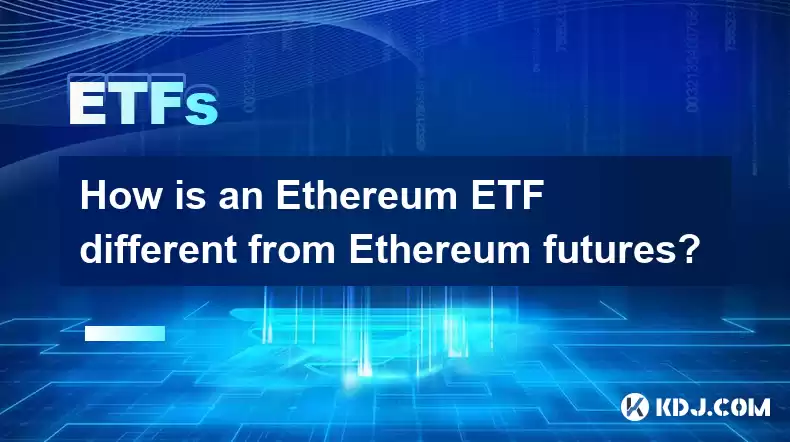
Key Points
- Definition and mechanism of Ethereum ETF
- Definition and mechanism of Ethereum futures
- Comparison of risk and return profiles
- Implications for investors
Detailed Content
Ethereum ETF: An Overview
An Ethereum ETF (exchange-traded fund) is a publicly traded investment fund that tracks the performance of Ethereum, the second-largest cryptocurrency by market capitalization. Unlike physical Ethereum tokens, ETFs offer a convenient and regulated way to gain exposure to the cryptocurrency without the risks and complexities associated with direct ownership.
Mechanism:
ETFs hold a basket of Ethereum tokens and issue shares that represent ownership of a proportional share of the underlying assets. Investors can buy and sell ETF shares on stock exchanges just like traditional securities.
Advantages of Ethereum ETFs:
- Diversification: ETFs provide instant diversification by giving investors exposure to a portion of the Ethereum market.
- Liquidity: ETFs trade on regulated exchanges, ensuring high liquidity and ease of execution.
- Accessibility: ETFs make it accessible for retail investors to participate in the cryptocurrency market without the need for specialized knowledge or infrastructure.
- Regulation: ETFs are subject to regulatory oversight, providing investors with a layer of protection and transparency.
Ethereum Futures: A Primer
Ethereum futures are standardized financial contracts that obligate the buyer to purchase (long position) or the seller to sell (short position) Ethereum at a predetermined price on a specific date in the future. They are traded on futures exchanges.
Mechanism:
Futures contracts involve two parties, one taking the long position and the other taking the short position. The price agreed upon is known as the futures price, which typically reflects the prevailing market expectations for the future price of Ethereum.
Advantages of Ethereum Futures:
- Hedging: Futures can be used by investors to protect against price fluctuations by entering into an offsetting position.
- Leverage: Futures contracts offer leverage, allowing traders to multiply their potential gains (or losses) for a given capital outlay.
- Shorting: Unlike ETFs, futures enable investors to take short positions, speculating on potential declines in Ethereum's price.
Comparison: Risk and Return Considerations
Risks:
- Price Volatility: Both ETFs and futures are exposed to the inherent volatility of the Ethereum market.
- Market Manipulation: The cryptocurrency market is susceptible to manipulation, which can affect ETF and futures prices.
- Regulation Uncertainty: The regulatory landscape for ETFs and futures is still evolving, which could introduce risks to investors.
Returns:
- Tracking Error: ETFs aim to track the underlying Ethereum price, but tracking error (deviation from the underlying's performance) can occur due to factors such as fund expenses and market conditions.
- Leverage Impact: Leverage in futures contracts can amplify both potential gains and losses, resulting in substantial risks for less experienced traders.
Implications for Investors
The choice between an Ethereum ETF and futures depends on individual risk tolerance, investment goals, and trading strategies.
- Long-Term Investors: ETFs are suitable for long-term investors seeking less risky exposure to Ethereum's potential price appreciation.
- Traders and Speculators: Futures offer more advanced trading options, including hedging and shorting, but come with higher risks that require experience and risk management skills.
- Passive vs. Active: ETFs provide passive exposure to Ethereum, while futures facilitate active trading and speculation.
FAQs
1. What is the difference between an Ethereum ETF and Ethereum futures?
An Ethereum ETF is a publicly traded fund that tracks the price of Ethereum, while Ethereum futures are contracts that obligate parties to buy or sell Ethereum at a predetermined price in the future.
2. Which is riskier, ETFs or futures?
Generally, ETFs are considered less risky than futures due to regulatory oversight and the absence of leverage.
3. How can I trade Ethereum ETFs?
Ethereum ETFs are traded on stock exchanges like traditional securities. You can purchase shares through a brokerage account.
4. What are the advantages of Ethereum futures?
Futures offer hedging, leverage, and shorting capabilities not available in ETFs.
5. What are the risks of Ethereum futures?
Futures expose investors to the risks of price volatility, market manipulation, and substantial losses due to leverage.
Disclaimer:info@kdj.com
The information provided is not trading advice. kdj.com does not assume any responsibility for any investments made based on the information provided in this article. Cryptocurrencies are highly volatile and it is highly recommended that you invest with caution after thorough research!
If you believe that the content used on this website infringes your copyright, please contact us immediately (info@kdj.com) and we will delete it promptly.
- Altcoin Rotation, Smart Money, and Investment Trends: What's the Deal?
- 2025-08-04 12:30:11
- Crypto, Pi Network, Movement: Is Pi Coin the Next Big Thing?
- 2025-08-04 12:30:11
- Bitcoin, Metaplanet, and Institutional Confidence: A New Era?
- 2025-08-04 12:50:12
- XRP Price, Ripple CTO, and Tokenized Finance: A New York Minute on Crypto
- 2025-08-04 12:50:12
- Pi Coin: Future Access or Early Adoption Blues?
- 2025-08-04 12:55:11
- Ethereum Liquidations Rock Crypto Market: What's a New Yorker to Do?
- 2025-08-04 13:00:17
Related knowledge
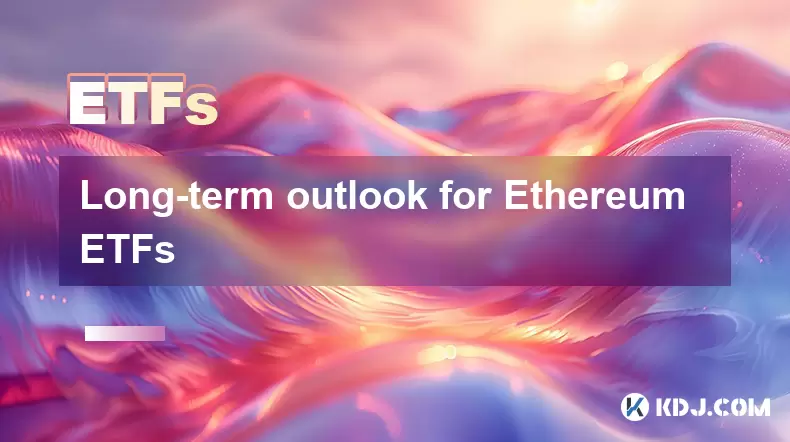
Long-term outlook for Ethereum ETFs
Jul 22,2025 at 06:42am
What Exactly Is an Ethereum ETF?An Ethereum Exchange-Traded Fund (ETF) is a financial product that tracks the price of Ethereum (ETH) and is traded on...
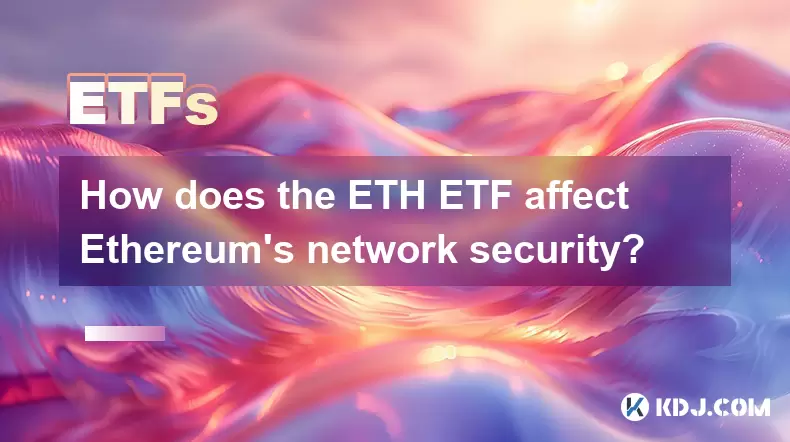
How does the ETH ETF affect Ethereum's network security?
Jul 17,2025 at 01:29pm
Understanding the ETH ETF ConceptAn Ethereum Exchange-Traded Fund (ETH ETF) is a financial product that allows investors to gain exposure to Ethereum ...
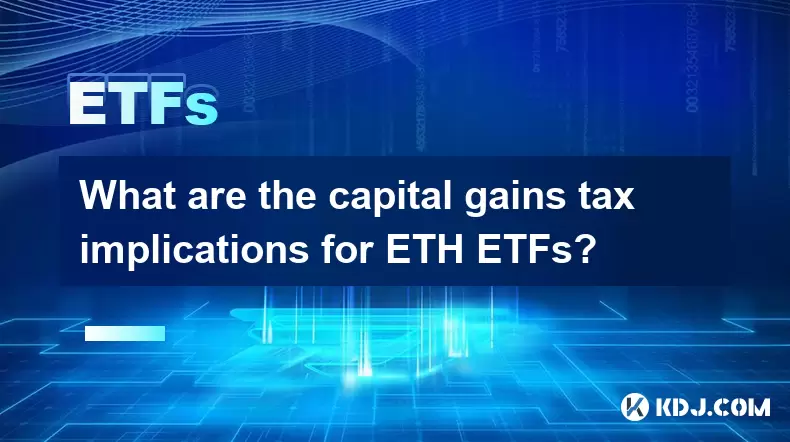
What are the capital gains tax implications for ETH ETFs?
Jul 18,2025 at 08:00am
Understanding Capital Gains Tax in Cryptocurrency InvestmentsCapital gains tax is a tax imposed on the profit realized from the sale of an asset that ...
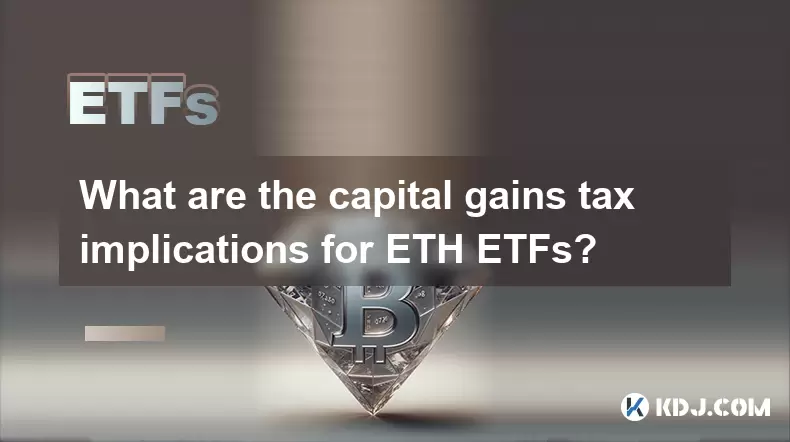
What are the capital gains tax implications for ETH ETFs?
Jul 21,2025 at 11:14am
Understanding ETH ETFs and Their TaxationAn Ethereum Exchange-Traded Fund (ETH ETF) allows investors to gain exposure to Ethereum without directly own...
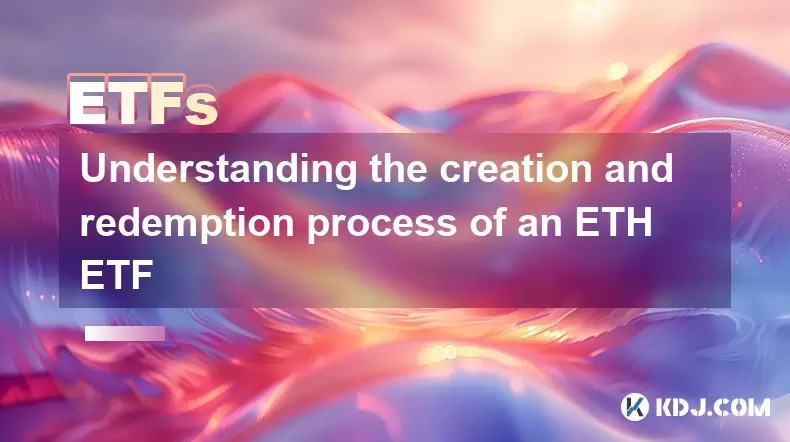
Understanding the creation and redemption process of an ETH ETF
Jul 19,2025 at 07:36am
What is an ETH ETF?An ETH ETF (Ethereum Exchange-Traded Fund) is a financial product designed to track the price of Ethereum without requiring investo...

How to analyze which ETH ETF is the best choice
Jul 19,2025 at 05:01pm
Understanding ETH ETFs and Their RelevanceEthereum Exchange-Traded Funds (ETFs) have emerged as a popular investment vehicle for those seeking exposur...

Long-term outlook for Ethereum ETFs
Jul 22,2025 at 06:42am
What Exactly Is an Ethereum ETF?An Ethereum Exchange-Traded Fund (ETF) is a financial product that tracks the price of Ethereum (ETH) and is traded on...

How does the ETH ETF affect Ethereum's network security?
Jul 17,2025 at 01:29pm
Understanding the ETH ETF ConceptAn Ethereum Exchange-Traded Fund (ETH ETF) is a financial product that allows investors to gain exposure to Ethereum ...

What are the capital gains tax implications for ETH ETFs?
Jul 18,2025 at 08:00am
Understanding Capital Gains Tax in Cryptocurrency InvestmentsCapital gains tax is a tax imposed on the profit realized from the sale of an asset that ...

What are the capital gains tax implications for ETH ETFs?
Jul 21,2025 at 11:14am
Understanding ETH ETFs and Their TaxationAn Ethereum Exchange-Traded Fund (ETH ETF) allows investors to gain exposure to Ethereum without directly own...

Understanding the creation and redemption process of an ETH ETF
Jul 19,2025 at 07:36am
What is an ETH ETF?An ETH ETF (Ethereum Exchange-Traded Fund) is a financial product designed to track the price of Ethereum without requiring investo...

How to analyze which ETH ETF is the best choice
Jul 19,2025 at 05:01pm
Understanding ETH ETFs and Their RelevanceEthereum Exchange-Traded Funds (ETFs) have emerged as a popular investment vehicle for those seeking exposur...
See all articles

























































































